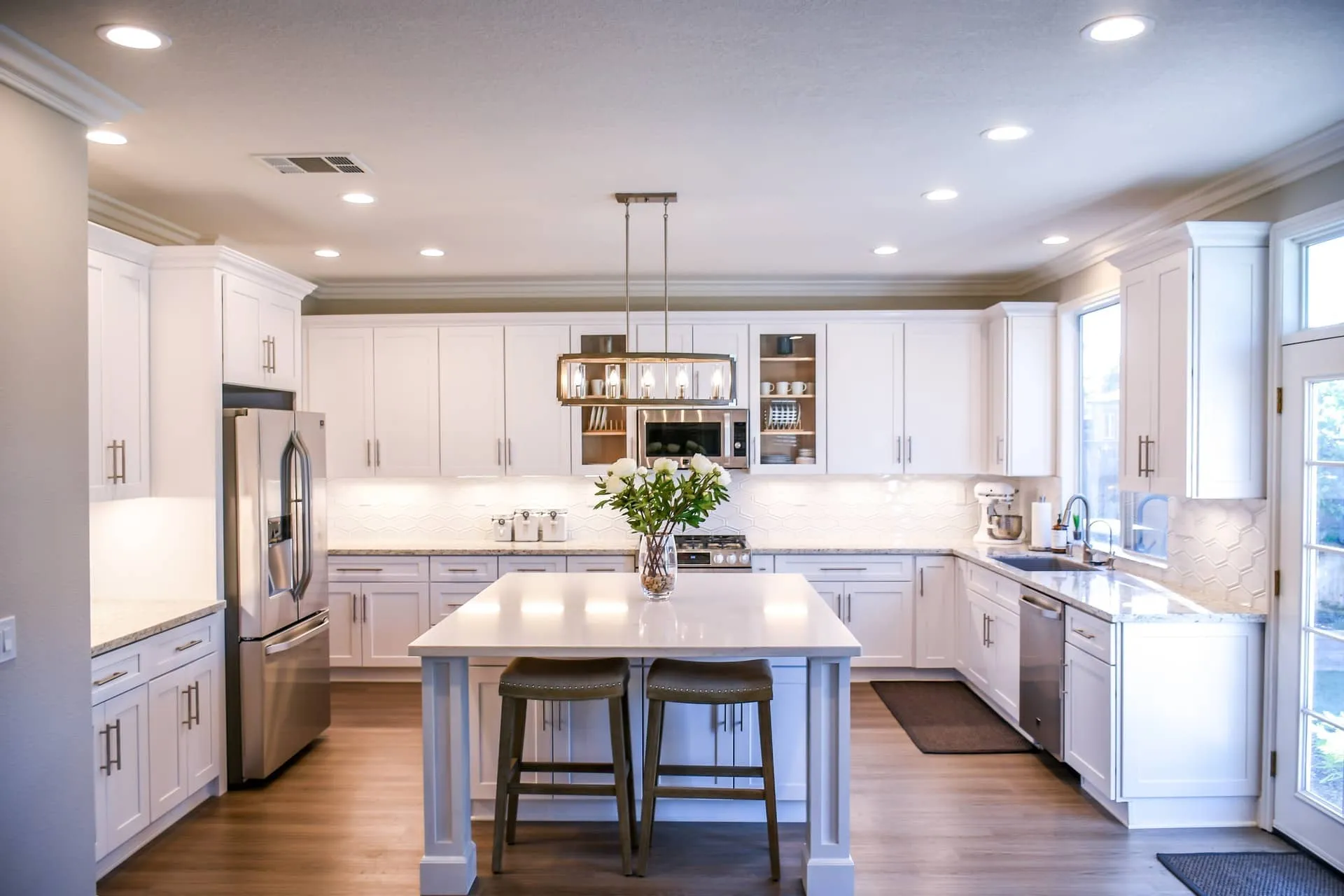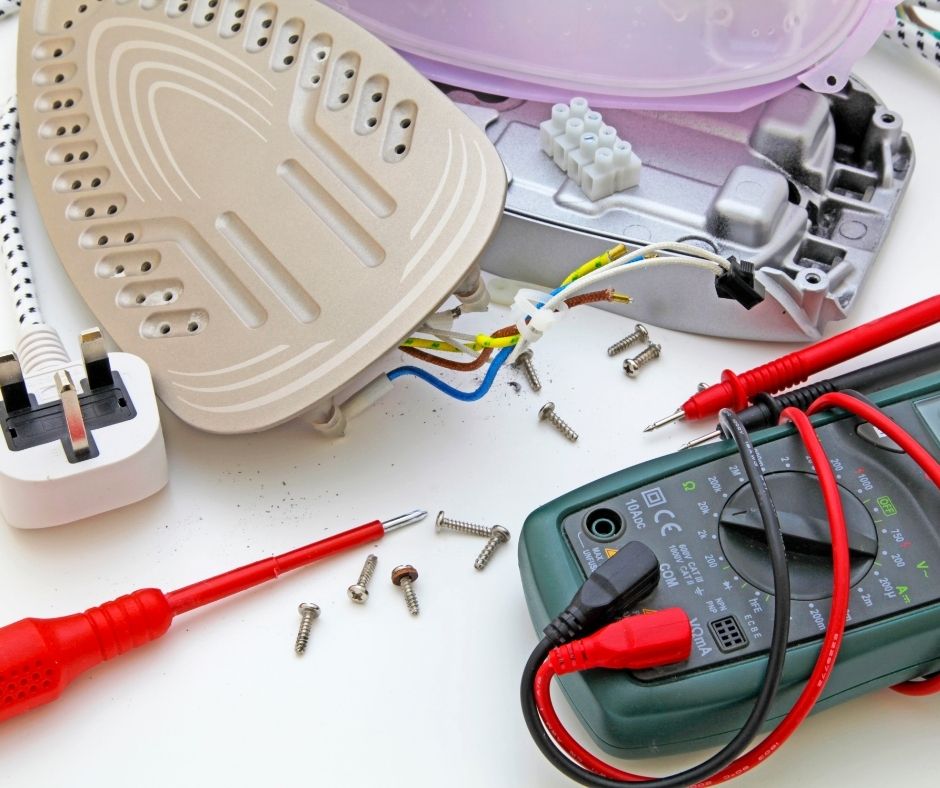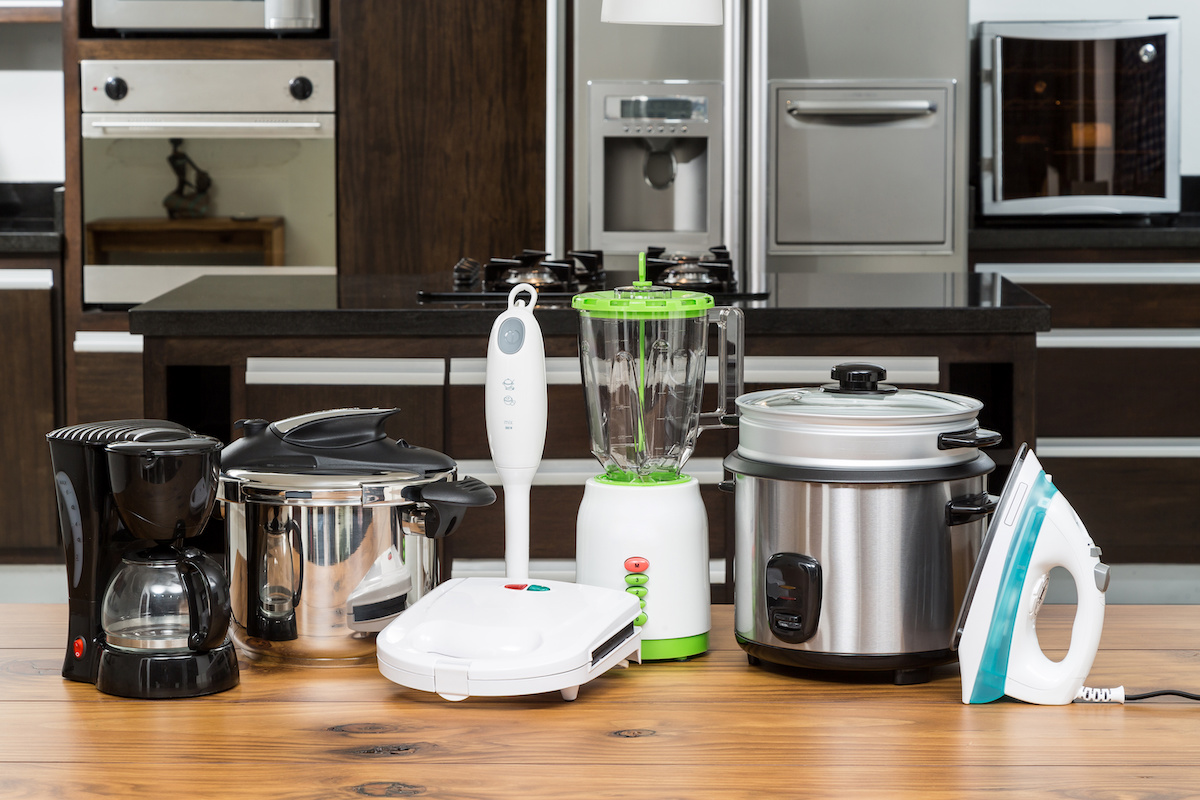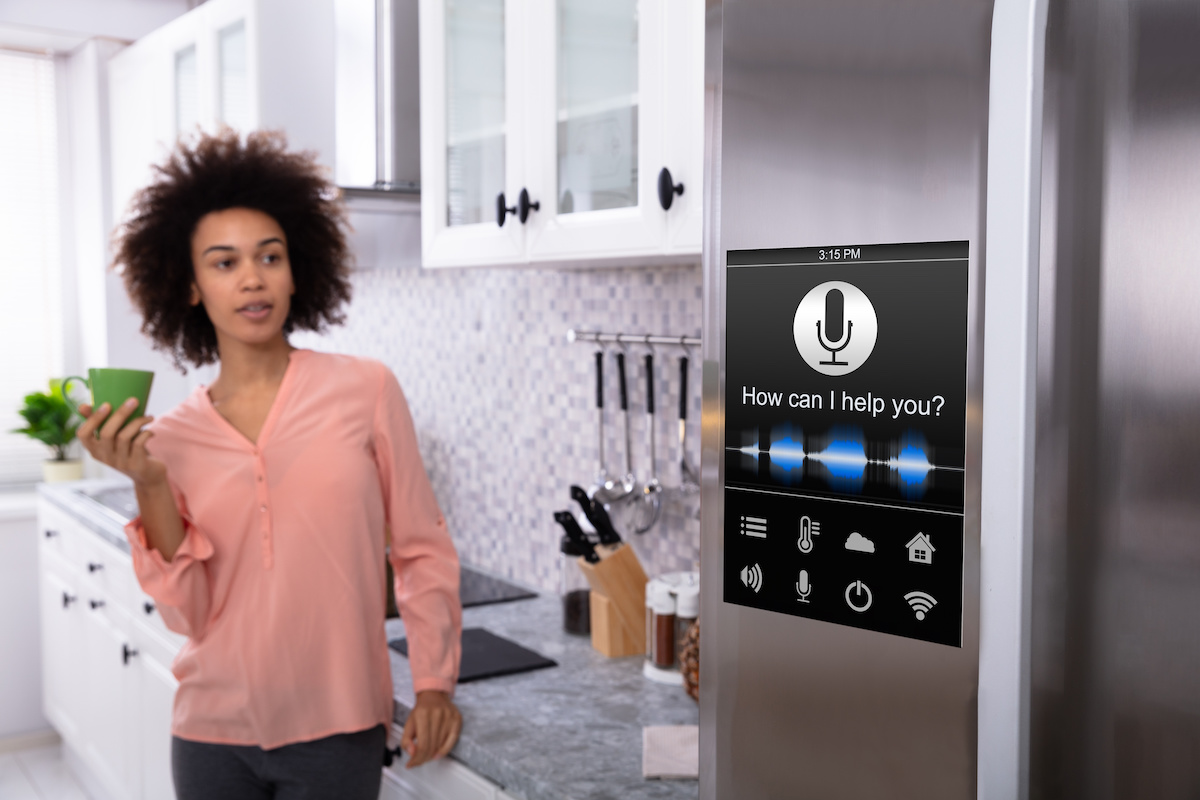
Are Smart Appliances Right for You? Pros and Cons
Smart appliances are transforming the way we interact with our homes. From refrigerators that can order groceries to washing machines you can start with your smartphone, these high-tech devices offer convenience, efficiency, and even a touch of futuristic appeal. But are they the right fit for your household?
At Atlanta Appliance Services, we understand that upgrading your appliances is a big decision. In this article, we’ll explore the pros and cons of smart appliances to help you determine whether they’re worth the investment.
What Are Smart Appliances?
Smart appliances are connected devices equipped with internet connectivity and sensors that allow them to communicate with other devices, apps, or users. These appliances often integrate with smart home ecosystems like Amazon Alexa, Google Home, or Apple HomeKit.
Examples of smart appliances include:
- Smart Refrigerators: Can track inventory, suggest recipes, or alert you when a door is left open.
- Smart Washers and Dryers: Let you start, stop, and monitor laundry cycles remotely.
- Smart Ovens: Allow you to control temperatures and cooking modes from your smartphone.
- Smart Dishwashers: Notify you when cycles are complete or if detergent is low.
- Smart Thermostats: Optimize energy usage by learning your temperature preferences.
While these features sound impressive, it’s important to weigh the benefits against the potential drawbacks.
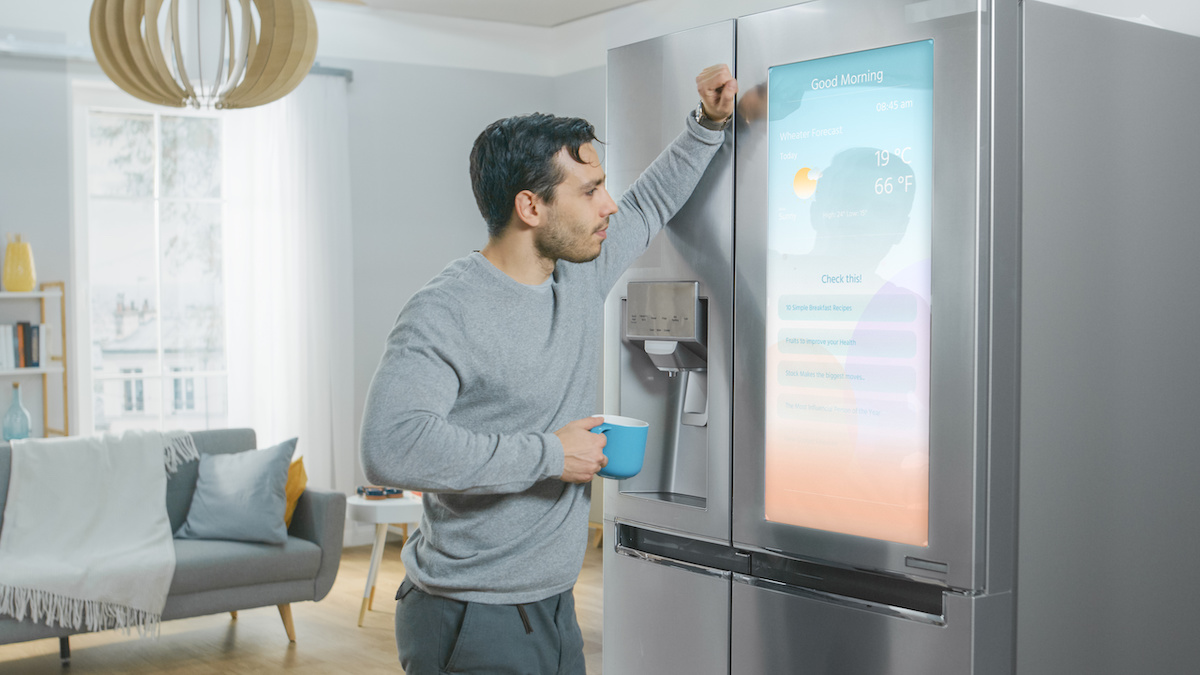
The Pros of Smart Appliances
1. Convenience and Remote Control
One of the biggest advantages of smart appliances is the ability to control them remotely. Imagine preheating your oven on the way home from work or receiving a notification that your washing machine has finished its cycle.
With companion apps, you can monitor and adjust your appliances without being physically present, saving time and hassle.
2. Energy Efficiency
Many smart appliances are designed to optimize energy usage, which can lead to significant savings on utility bills. For instance, smart refrigerators adjust cooling levels based on usage patterns, and smart thermostats learn your habits to create energy-efficient schedules.
Some devices even provide detailed reports on energy consumption, allowing you to identify and reduce waste.
3. Enhanced Functionality
Smart appliances often come with advanced features that go beyond the basics.
- Smart Refrigerators: Some models have touchscreens, cameras to view contents remotely, and grocery management systems.
- Smart Ovens: Certain models include guided cooking recipes and precise temperature control for perfect results.
- Smart Washing Machines: Features like load-sensing technology and automatic detergent dispensing improve performance and convenience.
4. Integration with Smart Homes
If you already have a smart home ecosystem, smart appliances can integrate seamlessly, creating a more connected experience. For example:
- Set your coffee maker to start brewing when your morning alarm goes off.
- Receive voice alerts through your smart speaker when your laundry is done.
- Sync your thermostat with your oven to adjust room temperature while you bake.
5. Updates and Upgrades
Smart appliances often receive firmware updates that enhance functionality or address performance issues. This means your appliance can improve over time without requiring a hardware replacement.
6. Increased Home Value
Smart appliances can be a selling point if you’re planning to put your home on the market. Many buyers are drawn to the convenience and modern appeal of a smart home.
The Cons of Smart Appliances
1. Higher Initial Cost
Smart appliances are generally more expensive than their traditional counterparts. While the added features and energy savings may offset the cost over time, the upfront investment can be significant.
2. Complexity and Learning Curve
The advanced features may feel overwhelming at first, especially if you’re not tech-savvy. Learning to navigate the app interfaces, voice commands, and settings can take time.
Additionally, some users find that the abundance of features is unnecessary for their lifestyle, making the added complexity more of a burden than a benefit.
3. Dependency on Internet Connectivity
Smart appliances rely on Wi-Fi or other internet connections to function properly. If your internet is down, you may lose access to key features or remote control capabilities.
4. Potential Privacy Concerns
Because smart appliances collect data, they may raise privacy concerns for some users. For example:
- Appliances track usage patterns to optimize performance, but this data may be shared with manufacturers or third parties.
- Some smart devices are equipped with cameras or microphones, which could potentially be vulnerable to hacking.
Ensuring your devices are secure and choosing reputable brands with clear privacy policies can mitigate these concerns.
5. Maintenance and Repair Challenges
Smart appliances are more complex, which can make maintenance and repairs more challenging:
- Diagnosing issues often requires specialized tools or expertise.
- Replacement parts for smart features (like sensors or screens) can be more expensive.
- Software glitches may require professional troubleshooting, adding to repair costs.
6. Obsolescence
Because technology evolves quickly, appliances may become outdated as new features and standards emerge. While some models receive updates, others may lose compatibility with newer systems over time.
7. Limited Compatibility
Not all smart appliances are compatible with every smart home system. Before purchasing, ensure the appliance works with your existing ecosystem to avoid integration headaches.
Who Should Consider Smart Appliances?
Smart appliances are a great fit for:
- Tech Enthusiasts: Those who enjoy exploring new technology and gadgets.
- Busy Families: Households that value the convenience of remote control and scheduling.
- Energy-Conscious Homeowners: Those looking to reduce energy usage and lower utility bills.
- Smart Home Users: Homeowners with existing smart systems who want to enhance connectivity.

How to Decide If a Smart Appliance Is Right for You
Before investing in a smart appliance, consider the following questions:
-
What Features Matter Most to You?
Identify which smart features align with your needs. For example, if you frequently forget to preheat your oven, then remote control might be a valuable feature. -
Do You Have a Reliable Internet Connection?
Since smart appliances depend on connectivity, ensure your home’s internet service is stable and fast enough to support them. -
What’s Your Budget?
Factor in the higher upfront cost of smart appliances and consider how the added features and potential energy savings fit into your budget. -
Are You Comfortable with Technology?
If you’re not tech-savvy, a simpler appliance might be a better fit unless you’re willing to learn. -
How Long Do You Plan to Keep the Appliance?
If you plan to use the appliance for many years, ensure it has features and compatibility that will remain relevant.
Maintaining and Servicing Smart Appliances
Regular maintenance is essential for any appliance, but smart appliances come with additional considerations:
- Software Updates: Keep the appliance’s firmware updated to ensure optimal performance.
- Routine Cleaning: Maintain sensors, screens, and other components to prevent issues.
- Professional Repairs: Work with a service provider like Atlanta Appliance Services to handle both traditional and smart-specific repairs.
The Verdict: Are Smart Appliances Worth It?
Smart appliances can enhance convenience, improve energy efficiency, and bring modern functionality to your home. However, they’re not without drawbacks, such as higher costs, complexity, and potential maintenance challenges.
Ultimately, the decision depends on your priorities, budget, and comfort level with technology. Whether you’re ready to embrace the future of home appliances or prefer to stick with traditional models, Atlanta Appliance Services is here to help with all your appliance needs.
If you’re considering a smart appliance or need assistance with an existing one, contact us today! Our team can guide you through the decision-making process, provide maintenance tips, and ensure your appliances stay in top condition.
